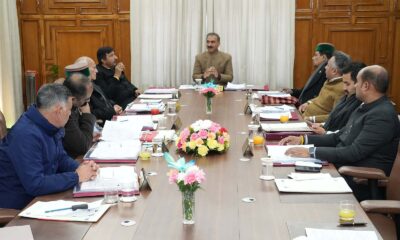Your Story
A village in Himachal with no electricity, no water supply, no roads, no health care
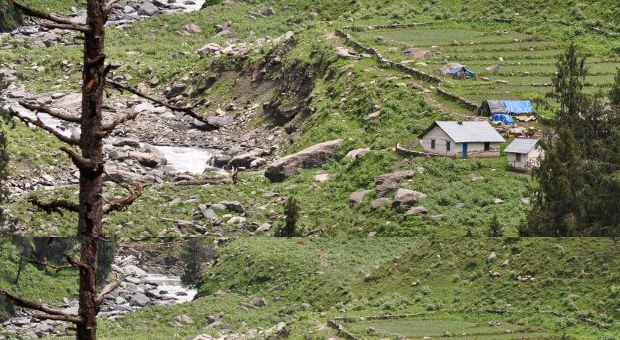
The villagers live on the mercy of a NGO, which supplies them water and electricity.
Bada Bhangal is a tribal village situated in the lap of beautiful Himalayas in Kangra district of Himachal Pradesh. The village is located at the height of 7700 ft above sea level and can be reached from Bir near Baijnath or from Chamba. The remote location of the place makes it mostly unexplored destinations in Himachal.
Life in Himachal is pretty much on the highway roads. People are moving towards 21st century with their high classic rides. The technological advancements in every field are penetrating the social life of our state. However, while rest of the state enjoys most of the basic facilities, Bada Bhangal still hasn’t touched the fine line of basic necessities. Government’s efforts to develop Bada Bhangal are nil. There is no sign of development in this area. Transportation facility is nil and there is no proper road or any convenient way to reach the village. Presently, people have no choice but to cross the Thamasar Pass on ponies.
Even the educational development in Bada Bhangal is nearly negligible. People are living on the mercy of an NGO, SAI Foundation that provides water supply to the village. It’s startling that the village doesn’t even have the electricity and are living on supply provided by the NGO. The NGO built a small dam near the village from where the villagers receive electricity from 11 AM to 11 PM daily and otherwise, they live without it rest of the time.
The health care facilities are abominable. They have a small dispensary in the village, but since 2002, not even a single doctor has chaffer there. Last visit of that of the pharmacists in 2007 and except that, not even single fellow has taken elbow grease to look at the goodly positions here. Moreover, the last supply of medicines was made during 2005-2006, which are expired now. Presently, a single class 4 employe, a resident of Barot, Joginder Nagar, is running the dispensary. He would tell you that no doctor or pharmacists ever make visit over there and he himself had to buy some medicines, so that if anyone approaches him he could help them.
Finding a village in Himachal in such a pathetic condition simply makes us wonder if we really live in the 21st century. What’s wrong with the government. After every 5 years, there is a sweep in the government, but for the villagers of Bada Bhangal, it’s always the same. Why didn’t any of the parties in the power ever bothered to attend to the poor condition of the village? Are they too blind to see the pain of the people living there? Why the government is not making any effort to provide even the basic services to its public? These villagers, too, had voted for the government. Then why their elected representatives have forgotten them?
It’s a bitter reality, all solidly backed up with facts and links. Ignore the wailing of the sad creatures themselves who feel exposed to the outside world and are only trying to make their life beautiful with natural processor. Really, wish for an early change for the good of the suffering villagers over here.
Article contribution: A HW reader (identity kept confidential on request)
Your Story
“This is a ladies seat”
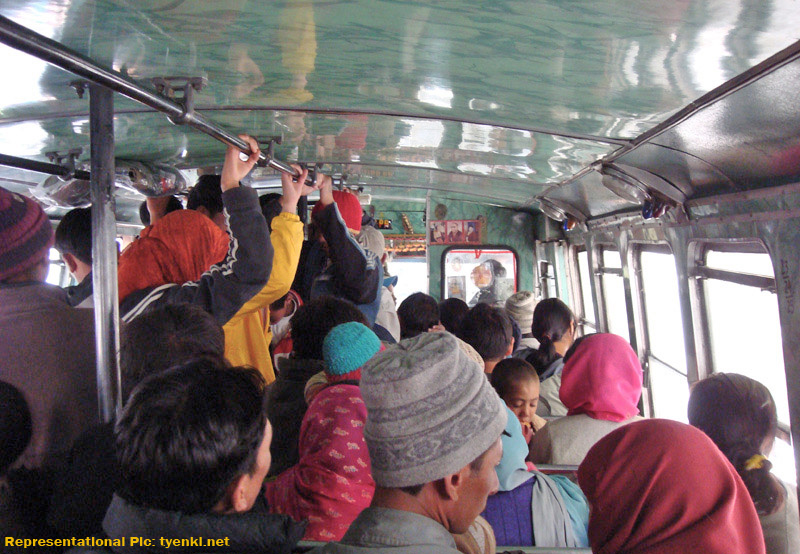
Shimla: Until now, I didn’t know the difference between a lady and a middle-aged woman when a ‘LADY’ on a local bus helped me distinguish it. While travelling in an overloaded local bus today, a voice from somewhere in the middle of the bus cracked into my ears saying “ye ladies seat hai.”
The irony of the situation was that the person who was trying to capture the so-called ladies seat was herself a lady, probably in her twenties. But, to my conscious, I came to know that women in their twenties are not considered ladies by other middle-aged ladies’. And, with no guilt, the ‘LADY’ took a seat proudly while the little ‘GIRL’ uttered softly but furiously “aap hi beth jao.”
The percentage of reserved seats for ladies in a local bus in Shimla is almost 50%. But this does not imply that women who are well built and enjoy a good health condition also cannot manage to stand for a few kms.
Reservation in India as a whole had already been criticized for a long time now.
But asking for a reservation for women and also granting it is not making women stronger or acceptable but weaker and vulnerable.
Women aren’t any minority in India who needs a reservation to prove themselves. And all women who think they need it are not strong enough to empower themselves.
Author: Tabbu Verma
Disclaimer: Himachal Watcher may not necessarily share the same opinion as expressed by the author.
Your Story
Weeklong Harassment by Shimla’s Electricity and Water Departments
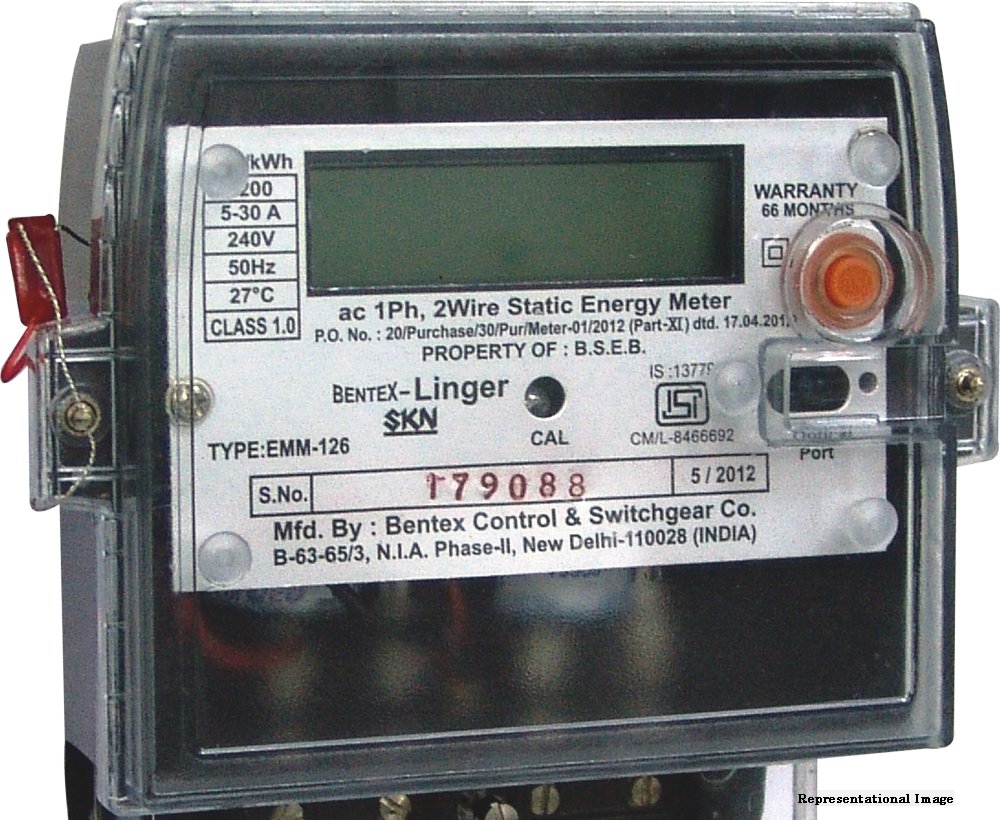
-
If you have a property (house) in Shimla but you don’t stay here, you could end up paying a price for it. Price not only in monetary terms but in terms of undue stress and pain.
I had been living in Rajasthan for a few months now, leaving home in Shimla only to return for the surprise of my life.
In today’s technologically advanced system, I could be considered liable for a moment, but what transpired because of my negligence (if you may) is something I don’t want anyone else to go through. This is why I’m sharing my bitter experience with the electricity board and water department in Shimla.
Living away from hometown, I should have paid water and electricity bills for my home in Shimla. I should have; but, due to negligence or over involvement in personal chores, I was unable to pay the bills online.
All the while, I had it in the back of the mind but I thought I will pay the bills (with whatever penalties) in person the next time I am in Shimla.
I thought it would be easy. Instead, I was for a week of mental trauma.
When I came back to Shimla, a few days back, there was no electricity and water supply to my home.
Worried not bewildered, I lived with it for the night and planned a visit the concerned departments the next morning, to clear the pending bills and have the water and electricity supplies restored.
To my surprise, it wasn’t as easy as I expected it to be.
When I went to pay the electricity bill at Lakkar Bazaar ( the area where my house is), I was asked to go to the main office of the electricity board in Sanjauli. I went to Sanjauli, where I was told that electricity connection to my house had been cut, and I needed to apply for a new connection.
I was told a fresh file, for a new connection, had to be made.Now I was certainly bewildered.
From then onward, I was sent from one electricity office to another for different papers. To the DC office for affidavits– all the procedures had to be done from scratch.
It took almost a week (six dark days precisely)to complete the entire procedure afresh. All this while I didn’t find one person in the electricity board who cared for the mental trauma I was going through or how my family would be living without electricity.
Finally, after innumerable visits to various offices of the electricity board, I took the file to the JE office in Snowdown hospital.
Here, I was meted with a shock. The courteous JE informed that my family didn’t have to stay without electricity for so many days, neither did I have to go through all the pain. JE said ‘power supply could have been restored to my home in matter of few hours after the bill payment and the process for new application could have been followed thereafter.’
He then sent a person from his office along with me to the concerned office in Lakkar Bazaar. Finally, we saw a bright night at my place.
JE was the only person in the entire electricity board who talked nicely, gave me correct guidance and helped solve my problem.
My worries were not just limited to the electricity board. I was all this while simultaneously running pillar to post to pay my water bill and have the water supply restored.
The issue was an elaborate water bill, which was beyond anyone’s understanding. For us, we should have only been charged the meter rent because we had not used water for months.
This is when I learned about plugging connection. When you are not at home and would not be using water for months, the water department requires you to plug the connection.
This ensures you’ve only billed the meter rent and not for the usage (though, how do you end up using water when you’re not home stays an arguable story for me).
During the weeklong process, I was not only without electricity at home, there was no water too.
Considering myself a defaulter, I silently kept doing what the office bearers in the department were asking me to do.I was ready to follow the procedure but it was such a pain to see that no officer was considerate enough to help resolve the issue soon. Instead, I was made to run from one office to another with documents that were not even required.
It took me eight long days to pay the pending bills, apply to have the water meter plugged, and to have water supply restored to my house.
This was it, I couldn’t have taken anymore but the water department wasn’t done with its lackluster attitude.
After a month of submitting the application to get the water meter plugged, I again received an inflated bill. I called the water billing office for clarity.
After making an infinite number of calls, I was finally informed that the water meter of my home was still not plugged.
Alas! What had I done wrong to deserve this?
Immediately, I called up Mr. Laxmi Thakur (the person) responsible for plugging the water meter. He said ‘Madam, I plugged your meter the same day you asked me to’.
The linesman was a helpful fellow.He took it upon himself and went to the billing office to check why I was still getting huge bills despite the meter being plugged.
Post inquiry, he informed me that my file had reached the water department from Mayor’s office the same day I submitted it but people in the billing office didn’t update the same on their computer systems.
With Mr Thakur’s efforts, my bill was recreated with the correct amount, which I then paid off instantly.
Awareness tips
•If electricity connection to your house is disconnected for non-payment of a bill, go directly to the JE of your area. The JE will escalate the matter and power supply will be restored. Now, follow the formalities, as guided, and get a new connection
•If you have property in Shimla but you’re out and not using IPH water supply, get your meter plugged to avoid rentals above the meter rent
By Rajni, Shimla
Photo: Sk-bent ex
Your Story
Sensitivity where art thou, Shimla cries for you
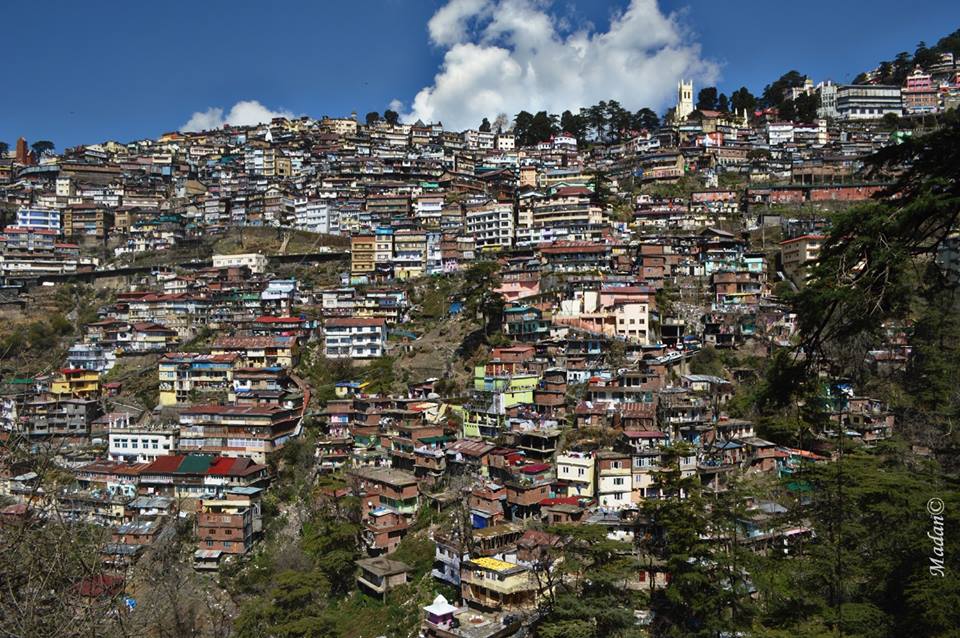
Times are changing alright; we are progressing with age and time has come when pace of Shimla is matching the pace of most developed cities in India. Time was when modesty, selflessness and compassion flowed through the heart of residents of the Queen of Hill. With development and large scale urbanization, the mindset of the town is changing – and the change is demeaning the basic culture and charm of the city.
Development and urbanization are slow poison to say. Initially they taste refreshing – refreshing to the extent that humans are lured so magnetically to them. Culminating effect is fatal. Shimla is sipping on this slow poison and is headed for self destruction.
Who is to blame? Finger pointing comes naturally to Indians, so when I ask this, all of us will have our fingers pointed at the administration.
Constitutionally this is correct – and why not, the administration and public representatives we have voted to power are responsible for it all. If there is uncontrolled urbanization – government policies should have been framed to avoid it. If there is unmanageable garbage on roads, pollution in the air and contaminated water in the taps – administration should have strict measures in place. But, considerable citizens are we the main contributors to this?
I once read “your character is what you are when you are alone”, and it has stayed with me ever since. I bring this up to validate my point. We citizens are primarily responsible for the rumpus we confront in the town of late.
Himachalis, the residents of the abode of snow, are by virtue sensitive to change, sensitive to our culture and sensitive to the surroundings. Thus, for Shimlaites this sense of sensitivity comes by default.
Change is the only constant. Change we must and so we are steadily. We are more literate, more monetarily concerned and at near prime of a standard of living. Culturally we are still rooted – probably our previous generation has instilled this sense in us. Concern looms on our sensitivity to the surroundings.
We are literate, but our education has defaulted somewhere. We are concerned but our sensitivity is lost somewhere. We blame but our self-conscience has gone astray.
Back in school (this would be some 20 years back) moral science and civics was taught to me. Back then I never realized how my consciousness towards little civic duties and efforts towards betterment of my surrounding would make a difference. Today I realize it, but my neighbour makes me believe, I am in the wrong part of the world with an unwanted conscience.
How justified is it then to be the run off the mill? Is what your neighbour doing the correct way to do things, I often ask this to myself. I don’t get an answer – an answer is difficult to find because ‘this is India and nothing is going to change here ever.’ This cliché must have reached your ears a number of times. I am growing old listening to it.
Certainly this is not how it should be, at least that sensitivity instilled in me by being part of the hill state, tells me so. Calling out to all who follow – Change we must!
Change to ask questions, why my rights are being murdered by incapable, narrow sighted governance. Change to come to terms with my sensitivity to question that neighbour who stays and feeds on my city’s resources but fails to do his bit in return. Change to question my own acts when I’m in public or when I am walking down the road by myself.


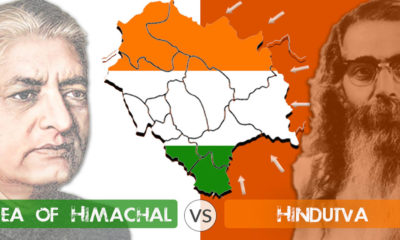

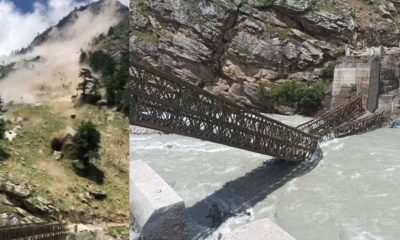

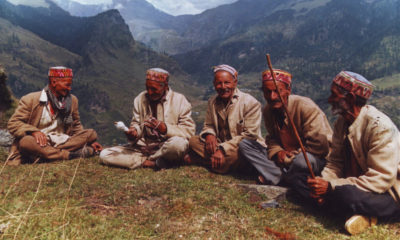







 Home Decor Ideas 2020
Home Decor Ideas 2020